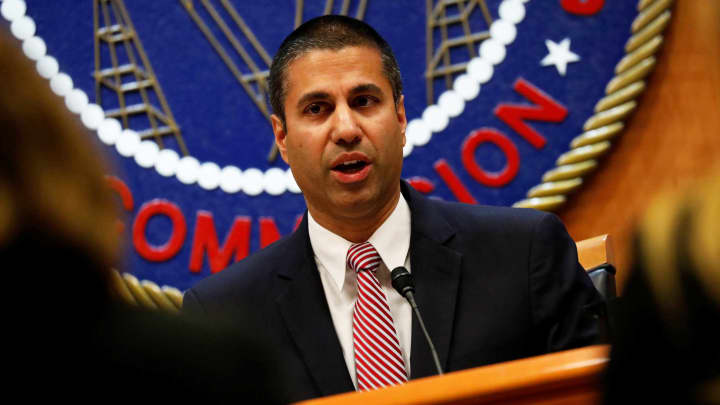
Aaron P. Bernstein | Reuters
Chairman Ajit Pai speaks ahead of the vote on the repeal of so called net neutrality rules at the Federal Communications Commission in Washington, December 14, 2017.
Federal Communications Commission (FCC) Chairman Ajit Pai and Hawaii governor David Ige vowed to investigate a false emergency alert that warned an incoming ballistic missile was on the verge of striking the island Saturday morning.
The mistaken alert, which was attributed human error, warned that a projectile was heading for the Hawaii. The snafu sent panicked residents scrambling to find shelters before they realized the alarm was unwarranted.
Michael Kucharek, a spokesman for the North American Aerospace Defense Command in Colorado Springs, Colorado, said NORAD and the U.S. Northern Command are still trying to verify what happened in Hawaii — but that “NORAD did not see anything that indicated any sort of threat” to the island.
Ige wrote on Twitter that a probe is already underway in the state, involving Hawaii’s Department of Defense and the the island’s Emergency Management Agency.
At a federal level, FCC Chariman Ajit Pai also promised “a full investigation into the false emergency alert.”
The state was only able to recall the alert 40 minutes after it was originally dispatched, which left fear-stricken residents in limbo awaiting catastrophe. In the incident’s wake, a battery of officials that included Democratic Rep. Tulsi Gabbard, took to social networks to inform Hawaii residents and visitors that the alert was a mistake.
Gabbard, told MSNBC in an interview that she questioned why the error wasn’t corrected more swiftly. “What my family went through and what so many families in Hawaii just went through is a true realization that they have 15 minutes to seek some form of shelter or else they’re dead — gone,” she told the network.
Source: Tech CNBC
FCC chief, Hawaii's governor vow to probe a false missile alarm that sent the island into a frenzy